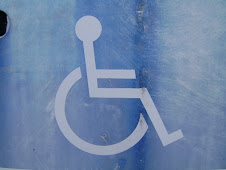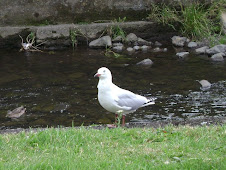"A new technology is rarely superior to an old one in every feature". Briefly discuss this statement in relation to digital camera technology. What would you consider to be some of the pluses and minuses digital camera technology holds in relation to more traditional film based cameras?
I think that by now I must be the only person within my circle of friends that does not have a digital camera. Don't get me wrong its not that I don't want one, cause I desperately do, its that I cannot afford one. Yes digital camera do come at a huge expense and they are changing and upgrading so often that by the time you have brought one it is already out of date.
I have used digital camera a lot despite not actually owning one myself, and yes I do Love them!
The positives of owning a digital camera would have to be that you can get ones that are water proof or all weather, they can assist those of us that have the DT's or the shakes having not had your coffee for the day, and the range of add on's that come with the camera such as red eye, automatic flash prepare us for almost every situation without necessary being aware.
The negatives of digital cameras are situated around the cost, and the small fiddly micro chips and complex nature of the mechanics. Gone are the days when your camera was a brick and if you dropped it, it would still work and if anything went wrong you could probably fix it yourself.
The surprise is lost with digital cameras also. With good old film you don't know what your photos are going to look like and its the excitement and anticipation of waiting for the film to be processed and returned for you to laugh or cry at the outcome. We readily have the ability to be vain and delete a digital photo if we don't like it.
List some of the ways that digital images can be stored transferred and manipulated using other communication technology?
Digital images can be stored on SD or XD memory cards, CD, DVD, computer, memory stick, cellphones, or palm pilots. We can transfer the digital images through email, social networking sites such as blogs, msn or facebook. They can be manipulated using programmes such as photo shop, CGI or scanning to make ourselves skinny, fat, airbrush ourselves, remove red eyes, and add others into the photos that were not able to be there.
Given the prevalence of image capturing devices, and thinking about the issues discussed in tutorial one, consider what sort of ethical issues may arise with their use?
Privacy has to be the main concern, you are on full view to the world in today's society, around the world surveillance cameras and web cams can capture your image and activities and project them around the world for all to see, your consent is not necessary. Issues could be raised as to whether this is invading ones privacy and putting them in a vulnerable position.
Briefly discuss some of the ways that digital images could, or are, being used in occupational therapy practice?
Digital cameras are being used to take photos of a clients environment to get them funding for a alteration. For example photo graphing an existing bathroom to send to enable funding with the report. Clients are being photo graphed or video conducting an activity to mark/compare their progress from the initial stage to the end.
Digital images may be used as a learning method especially in children.
Provide a brief summary of the services offered by flickr.com
Flickr.com provides a service for you to manipulate your digital images. This ranges from rotating, cropping or enhancing your photos to CGI or photo shopping it to obtain the image you want.
Name one other photo storage website which offers a service similar to flickr.com?
Photo shop, snapfish.
Explain what the difference is between a digital and optical zoom.
Most digital cameras provide two methods for zooming: optical and digital. Unlike optical zoom, which uses the optics of the lens to magnify the size of an image, digital zoom discards pixels around the edge of an image, fitting the remaining pixels into the same space to give the appearance of zoom. Since digital zoom comes at the expense of resolution, you should always choose a camera based on its optical zoom, not the digital or combined figure. Retrieved 5/05/08
www.digitalcamera-hq.com/digital-cameras/glossary-info_guide.html
Explain what is meant by the term mega pixel?
A measure of resolution that reflects the ability of a digital camera to record detail. The more megapixels a camera has the more detail its images can contain and the more they can be enlarged without losing clarity. More megapixels aren't always necessary, however.
www.digitalcamera-hq.com/digital-cameras/glossary-info_guide.html
Subscribe to:
Post Comments (Atom)



No comments:
Post a Comment